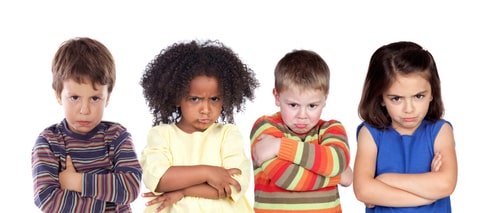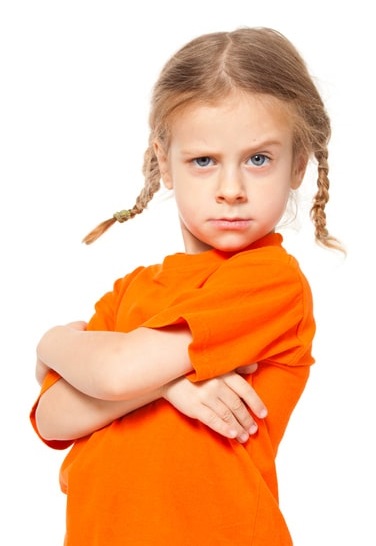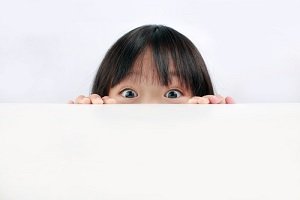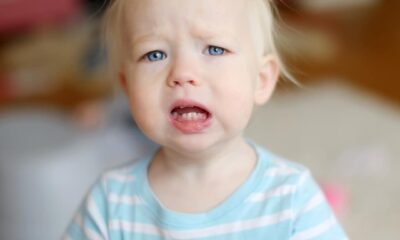Advice
What happens when adults lie to children?

Researchers refer to it as “parenting by lying” — intentionally deceiving children through verbal statements to influence them (Setoh et al 2024). Studies indicate that the majority of parents engage in this behavior to some extent. So, is it detrimental? What are the consequences when adults lie to children? Research suggests that children may become more dishonest themselves, and not only that: Consistent exposure to lies may elevate the risk of children developing aggressive and antisocial behavior.


How do we know? What causes lying to be “contagious”? And how can we prevent it? Let’s delve deeper into the research.
Blatant lying 101: The quick and easy way to increase dishonesty in children
How can we assess the impact of adult lies on children’s behavior? Researchers have devised an experimental approach, which goes as follows.
Phase one: Tell a lie
A friendly but unfamiliar adult approaches a child and says, “There is a large bowl of candy in the next room. Would you like to go get some?”
The child agrees and follows the adult into the room. However, there is no candy. The adult confesses it was a lie, stating, “I just said that because I wanted you to come play with me.”
How do the children react to this? In an experiment by Chelsea Hays and Leslie Carver involving 46 children, they observed that — as expected — children felt disappointed. Nevertheless, the children were polite and agreed to play with the adult nonetheless. This leads to the next phase of the experiment.
Phase two: A guessing game
Next, the adult instructs the child to look straight ahead while holding a toy behind the child’s back. In the study by Hays and Carver, the toy represented a well-known children’s fictional character (such as Winnie the Pooh or the Cookie Monster).
This is a guessing game, the child is informed. Try to guess the identity of the toy without peeking.
After two rounds of the game, the adult suddenly mentions that she needs to step out for a moment to take a phone call. She assures she will return shortly to resume the game.
Meanwhile, she explains, she will leave the next toy to be identified behind. She covers it — preventing the child from seeing it — and places it on a table.
“Don’t peek while I’m away!”
Phase three: The adult leaves, then returns…how do children react?


In the study by Hays and Carver, the adult was absent for 90 seconds, during which the child’s actions were recorded by a hidden camera.
Upon the adult’s return, she asks the child to promise to tell the truth. She then queries, “While I was gone, did you turn around and peek at the toy?”
At this critical juncture, if the children had peeked, would they lie about it now? Hays and Carver documented the responses and compared them to those of children in a control group — 47 kids who underwent the same procedure but without the initial deceit. They were not lied to.
Did previous exposure to adult lying affect children’s behavior?
Did the children react differently based on whether or not they had caught the adult in a lie before?
For the younger children, the answer was no. Comparatively, 3- and 4-year-olds tended to peek more frequently. They also tended to tell the truth more often. However, their responses did not differ based on the condition. Being lied to did not make an impact.
Conversely, the behavior of older children (aged 5 and above) was contingent on the adult’s honesty. Those who had been deceived by the adult were more inclined to peek and subsequently lie about it.
Why were the youngest children unaffected?
Perhaps the preschoolers in this study were simply too young to comprehend the intricacies of lying. Research indicates that young children may lack the cognitive abilities to fully grasp the concept of lying. Alternatively, maybe the youngest children were more forgiving (Hays and Carver 2014).
Nevertheless, the experiment furnishes evidence that older children — those aged 5 and above — altered their behavior. It is important to note that this experiment focused on very short-term effects — a child’s immediate response to a single instance of lying.
So in reality, what constitutes “parenting by lying”?
Researchers provide the following examples.
Lies told by parents to elicit compliance
According to Peipei Setoh and her team, these lies typically manifest in two forms — false threats and false promises.
False threats encompass warnings like, “If you continue to mistreat your sister, I will call the police to have you arrested,” while false promises involve insincere attempts at bribery, such as “If you complete your homework, I will take you to Disneyland” (Setoh et al 2024).
Lies told by parents to influence a child’s emotions
These lies encompass well-meaning falsehoods intended to make children feel happy and confident — like insincere praise. They also include endorsements of imaginary beings in which the parent does not genuinely believe (like the Tooth Fairy).
Who practices parenting by lying?
As mentioned earlier, it is widespread. Surveys indicate that approximately 78% of American parents engage in this behavior. In China, the percentage of parents who lie to their children may be as high as 90% (Setoh et al 2024).
What happens when children are raised in an environment where adults routinely use lies to control and manipulate them? Scientifically, conducting long-term experiments to answer this question would be unethical. Instead, researchers have measured lying in the real world and looked for correlations.
Preliminary research suggests that children exposed to higher levels of parental lying are more likely to tell lies themselves and experience problems with psychological adjustment (Jackson 2021; Low et al 2023).
Studies have also explored the potential long-term effects of “parenting by lying” into adulthood. Research indicates that young adults who were exposed to parental lying as children are more likely to engage in dishonest behavior as adults and experience psychological maladjustment (Santos et al 2017; Setoh et al 2020).
While these correlations do not prove causation, they are consistent with the idea that parental lying may contribute to the development of dishonesty and psychological issues. Additionally, research on social networks suggests that people are more likely to lie when they perceive others in their environment engaging in dishonest behavior (Mann et al 2014).
The pattern of dishonesty breeding dishonesty aligns with game theory concepts like the Prisoner’s Dilemma, where individuals must decide whether to trust others or act in their own self-interest to minimize negative consequences. In the context of parenting, these studies highlight the potential impact of parental lying on children’s behavior and psychological well-being into adulthood. However, you can both avoid spending 20 years in prison.
Unfortunately, you can’t have this private conference, and you have to worry about being double-crossed. This might lead both of you to confess, resulting in both of you serving 15 years!
So, what does this have to do with honesty and parenting?
You might never face prison time, but the dilemma of cooperating or defecting arises frequently in daily life.
In situations where we want to cooperate, it may not always align with our immediate selfish interests, but it usually benefits us in the long run by helping us build supportive social networks.
However, the issue arises when we can’t trust the other person.
This is where the Prisoner’s Dilemma relates to “parenting by lying.” Children have to decide whether or not to trust us, similar to how individuals in the dilemma have to second-guess their accomplice.
Game theorists have proposed the “tit for tat” strategy, which involves cooperating initially and then reciprocating the other person’s behavior.
If children respond to parental lying with a tit-for-tat approach, it could pose challenges. However, research suggests that individuals focus on the long-term trend of trustworthiness rather than immediate retaliation.
This indicates that by minimizing lying and establishing a good track record of honesty, parents can build trust with their children.
Yet, when parents lie to kids, it may lead them to lie back, potentially resulting in long-term consequences if trust is not repaired.
Regarding links with aggression and antisocial behavior, parental lying may displace other constructive methods of behavior shaping, leading to a higher risk of antisocial problems in children.
To steer kids away from such behavior, coaching them on handling emotions and impulses can be beneficial.
In conclusion, children are better off when adults avoid telling manipulative lies to them. Modeling honest behavior is crucial for inspiring honesty in children and fostering healthy relationships.
Effort and vigilance are required to uphold honesty and kindness in relationships, but the benefits are significant. For more details, please refer to my piece titled “Compassionate deception: Do children tell lies to be kind?”
References: When adults lie to children
1. Cargill JR and Curtis DA. 2017. Parental Deception: Perceived Effects on Parent-Child Relationships. Journal of Relationships Research 8: e1.
2. Hays C and Carver LJ. 2014. Follow the liar: the effects of adult lies on children’s honesty. Dev Sci. 17(6):977-83.
3. Heyman GD, Hsu AS, Fu G, Lee K. 2013. Instrumental lying by parents in the US and China. Int J Psychol. 48(6):1176-84.
4. Heyman GD, Luu DH, Lee K. 2009. Parenting by lying. J Moral Educ. 38(3):353-369.
5. Jackson R. 2021. Exploring the associations of parenting by lying with psychosocial adjustment, dishonesty, and culture. University of Toronto.
6. Low PHX, Lee K, Meaney MJ, and Setoh P. (2023, March 24). Parenting by lying and its correlates of psychosocial outcomes in Singaporean children [Paper presentation]. Society for Research in Child Development 2023 Biennial Meeting, Salt Lake City, Utah, United States.
7. Mann H, Garcia-Rada X, Houser D, Ariely D. 2014. Everybody else is doing it: exploring social transmission of lying behavior. PLoS One. 9(10):e109591
8. Nguyen SP, Gordon CL, Chevalier T, Girgis H. 2016. Trust and doubt: An examination of children’s decision to believe what they are told about food. J Exp Child Psychol.144:66-83.
9. Santos RM, Zanette S, Kwok SM, Heyman GD, and Lee K. 2017. Exposure to Parenting by Lying in Childhood: Associations with Negative Outcomes in Adulthood. Front Psychol. 2017 8:1240.
10. Setoh P, Low PHX, Heyman GD, Lee K. 2024. Parenting by Lying. Curr Dir Psychol Sci. 33(1):51-57.
11. Setoh P, Zhao S, Santos R, Heyman GD, Lee K. 2020. Parenting by lying in childhood is associated with negative developmental outcomes in adulthood. J Exp Child Psychol. 189:104680.
12. Vanderbilt KE, Heyman GD, Liu D. 2014. In the absence of conflicting testimony young children trust inaccurate informants. Dev Sci. 17(3):443-51.
Text © 2018 – 2021 Gwen Dewar, Ph.D., all rights reserved
Image of girl in orange shirt with raised eyebrow by istock / TatyanaGl
Image of peaking child by TY Lim / shutterstock
Image of grumpy kids in a line-up by Gelpi / shutterstock
Close-up of girl talking to adult by pixelheadvideo digitalskillet / shutterstock
Aggressive boy by Alona Siniehina / shutterstock
Content last modified 11/2024. Portions of the text are derived from an earlier version of this article, written by the same author. Please rewrite this sentence.
-

 Destination8 months ago
Destination8 months agoSingapore Airlines CEO set to join board of Air India, BA News, BA
-

 Breaking News10 months ago
Breaking News10 months agoCroatia to reintroduce compulsory military draft as regional tensions soar
-

 Gadgets3 months ago
Gadgets3 months agoSupernatural Season 16 Revival News, Cast, Plot and Release Date
-

 Tech News12 months ago
Tech News12 months agoBangladeshi police agents accused of selling citizens’ personal information on Telegram
-

 Productivity11 months ago
Productivity11 months agoHow Your Contact Center Can Become A Customer Engagement Center
-

 Gadgets3 weeks ago
Gadgets3 weeks agoFallout Season 2 Potential Release Date, Cast, Plot and News
-

 Breaking News10 months ago
Breaking News10 months agoBangladesh crisis: Refaat Ahmed sworn in as Bangladesh’s new chief justice
-

 Toys12 months ago
Toys12 months ago15 of the Best Trike & Tricycles Mums Recommend























